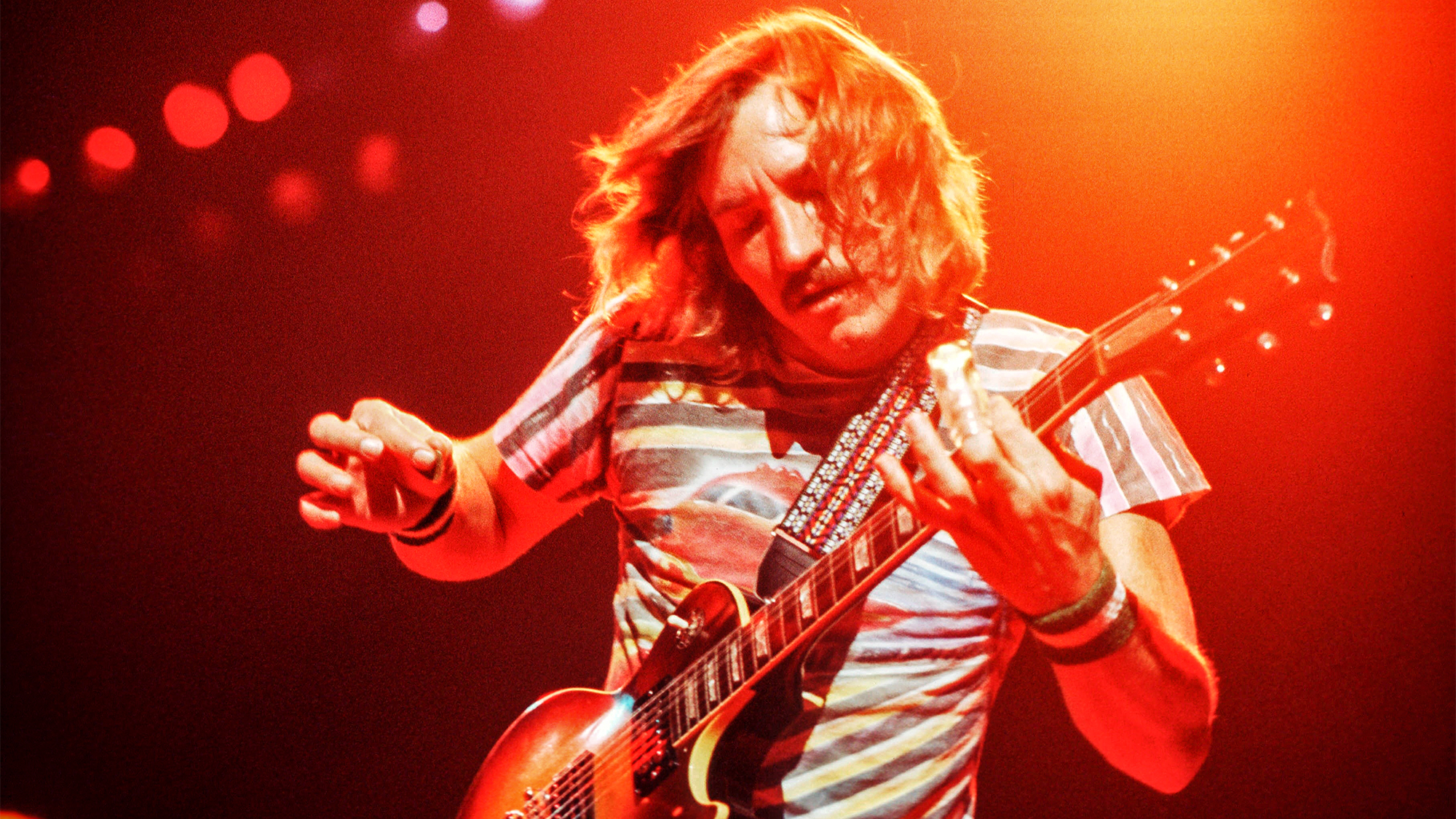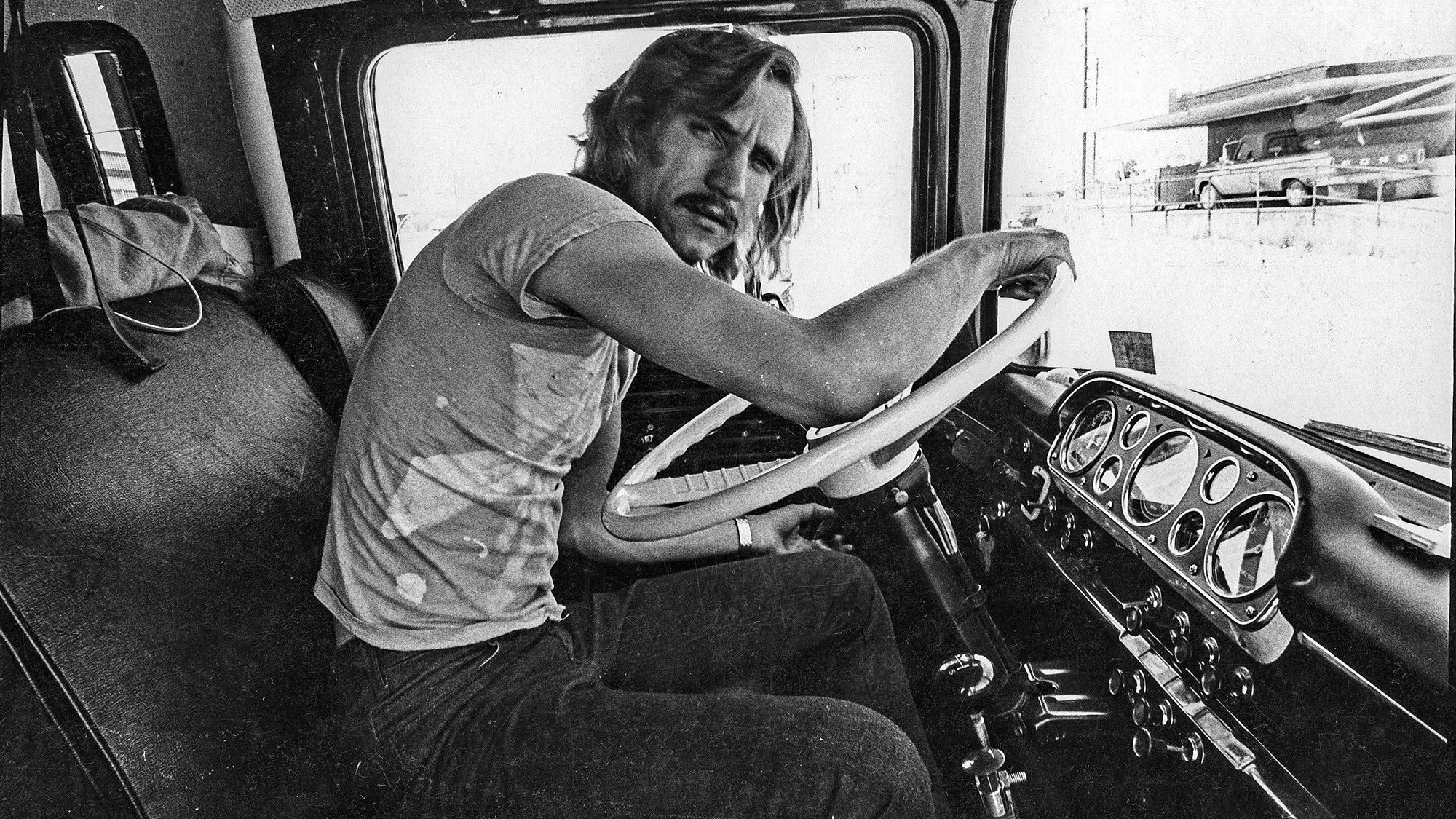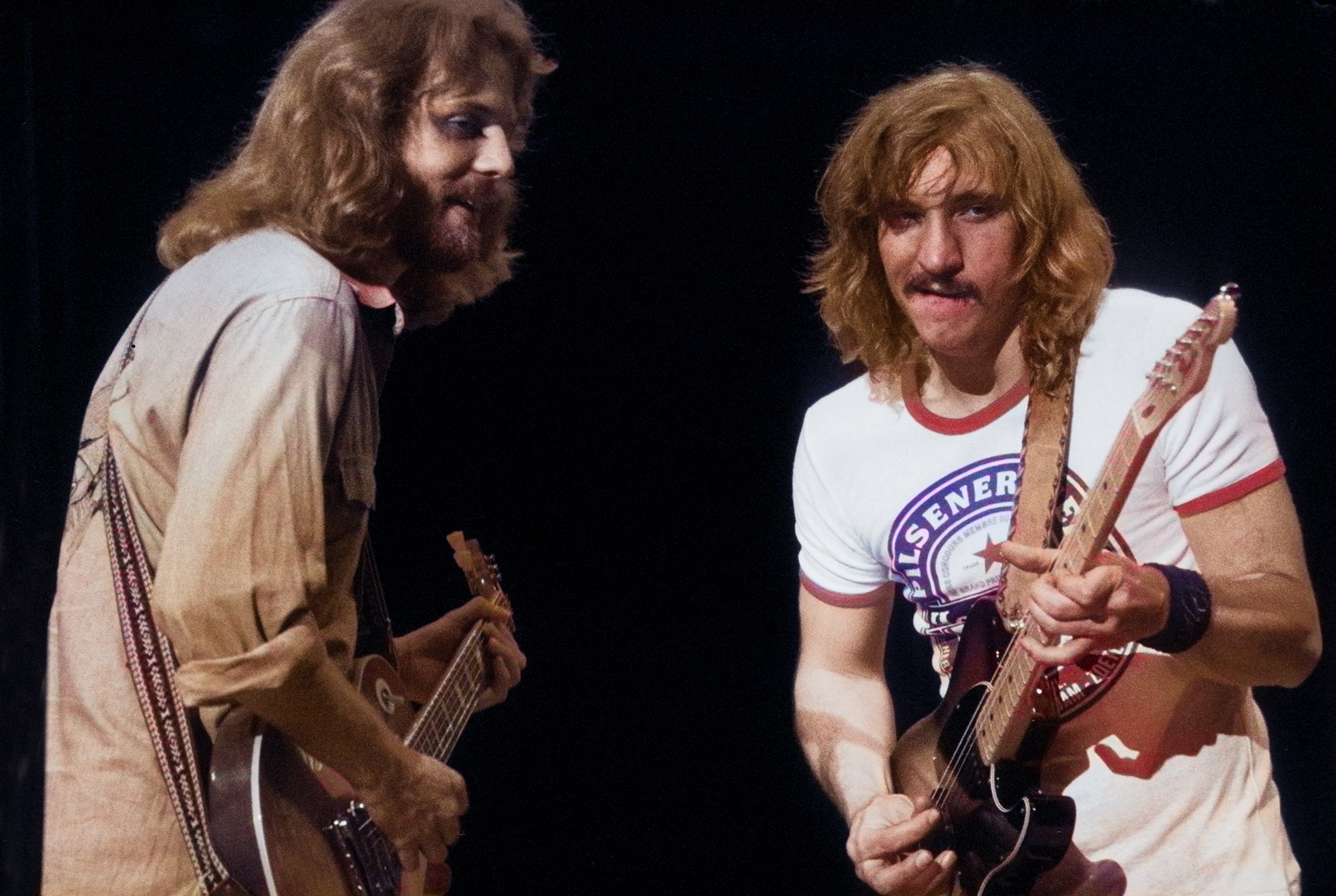“Those lyrics wound up costing me 1,500 bucks, but it was well worth it.” Joe Walsh on the iconic rock hit that got him into the Eagles and turned him into a TikTok star. And all because he mowed down his neighbor’s rose bushes
The “Unfortunately, I do love” theme song is about standing proud even when you might feel shame. Millions of TikTok users have taken the sentiment to heart

At 77, Joe Walsh has racked up achievements and accolades in music that span decades, iconic artists and various genres. He’s been in the James Gang and the Eagles, turned guitarists like Pete Townshend onto some of their favorite electric guitars, and written enduring hits like “Life’s Been Good” and “A Life of Illusion.”
Walsh can now add “TikTok phenomenon” to his résumé. Over the past months, the guitarist’s 1973 hit “Rocky Mountain Way” has flown its way back onto the charts thanks to a TikTok trend where users post videos overlaid with the phrase “Unfortunately, I do love,” followed by a list of their bad habits and guilty pleasures. On video after video, “Rocky Mountain Way” provides the unapologetically ballsy soundtrack to accompany users’ bold and occasionally shameless revelations.
It’s not the first time the song has brought Walsh fame. It’s not even the second. “Rocky Mountain Way” — which features some of the guitarist’s classic swampy electric slide playing — has been a three-time charm for the him, going back to its origins.
After leaving his band James Gang in late 1971, Walsh relocated from Cleveland, Ohio to the Rocky Mountain State, Colorado, where he settled in Boulder. He and his band Barnstorm released their self-titled album in 1972, after which Walsh began work on a solo record with assistance from the group’s members: bass guitarist Kenny Passarelli, keyboardist Rocke Grace and drummer Joe Vitale.
The four musicians had written a jam they all liked, but Walsh was having a hard time coming up with lyrics for it. Inspiration struck him at a most unusual time.
“One day I was in my backyard in Boulder mowing the lawn, and I was thinking, Boy, I sure hope leaving the James Gang was a good idea,’because I hadn’t really surfaced as a solo act yet,” he explained to Rolling Stone in 2016. “I was almost there, but not quite. And then I looked up, and there were the Rocky Mountains.
“It was summer but you could still see snow on the back range. It just hit me how beautiful it all was, 5,000 feet up.
All the latest guitar news, interviews, lessons, reviews, deals and more, direct to your inbox!

“And that was it. The words came: ‘Spent the last year Rocky Mountain way / Couldn’t get much higher.’
“And the second verse is about my old management — telling us this, telling us that, time to change the batter. I got all of that at once. And I ran inside to write it down before I forgot it.”
Unfortunately, Walsh left his lawn mower running. In his absence it began moving into his neighbor’s yard and destroying her prized rose bushes.
“Those lyrics wound up costing me, I don’t know, maybe 1,500 bucks, but it was well worth it,” Walsh said. “The neighbor, though, she was pissed. I said to her, ‘You don’t understand. I got the words.’ But she just looked at me.”
Released as the lead single from his solo debut, 1973’s The Smoker You Drink, the Player You Get, “Rocky Mountain Way” hit number 23 on the Billboard Hot 100. It made him a star in his own right, ensuring his solo career would move ahead.
That seemed only fair, considering that the song was all about Walsh breaking free from James Gang and going his own way.
“I got kind of fed up with feeling sorry for myself, and I wanted to justify and feel good about leaving the James Gang, relocating, going for it on a survival basis,” he said in the book The Guitar Greats. ”I wanted to say, ‘Hey, whatever this is, I’m positive and I’m proud,’ and the words just kind of came out of feeling that way, rather than writing a song out of remorse.
“And it did turn out to be a special song for a lot of people. I think the attitude and the statement of that have a lot to do with it — it’s a positive song, and it’s basic rock and roll, which is what I really do."
I wanted to say, ‘Hey, whatever this is, I’m positive and I’m proud.’ It’s a positive song, and it’s basic rock and roll, which is what I really do."
— joe Walsh
Walsh’s follow-up albums, So What and the subsequent live album, You Can’t Argue With a Sick Mind, both hit the charts, continuing his streak.
By then he had become close friends with the Eagles. They shared a manager, Irving Azoff, and producer, Bill Szymczyk, and Walsh toured with the group, where he’d join them on their encores for hell-raising performances of — what else? — “Rocky Mountain Way.”
Those guest spots eventually opened the door for him to replace founding Eagles member Bernie Leadon, who had fallen out of favor with frontman Glenn Frey.

“For our encores, we’d put Joe Walsh in a road box,” Frey said in the 2013 documentary History of the Eagles. “There would be Joe with his Les Paul, and we would play ‘Rocky Mountain Way.’ As we’re playing, I keep thinking to myself, ‘Joe Walsh over Bernie Leadon?’”
Once Leadon was out, Walsh was in, bringing his harder rock sound to the fore with that of lead guitarist Don Felder. Together, the duo helped continue their winning streak with their work on songs like “Hotel California” and “Life in the Fast Lane,” a monster rocker built on a blazing electric guitar riff crafted by Walsh.
“One day, at rehearsal,” Don Henley recalled, “Joe just busted out that crazy riff and I said 'What the hell is that? We've got to figure out to make a song out of that.’”
Now, as “Rocky Mountain Way” once again brings Walsh back into the spotlight, the song is also introducing a new generation to the guitarist’s distinctive style, which combines memorable hooks with expressive phrasing and a grab-‘em-by-the-throat approach to slide guitar that he learned from no less than Duane Allman.
It’s a style of playing that has made fans of guitar greats that include icons like Jimmy Page and Eric Clapton, the latter of whom said, “I don’t listen to many records, but I listen to his.”
And while he continues to perform with the Eagles — the group is currently playing a residency at the Sphere in Las Vegas through February 2026 — he remains a star in his own right. Which is why you’ll often come across the popular internet meme, “Even people who hate the Eagles are like, ‘but Joe Walsh is all right.’”
Christopher Scapelliti is editor-in-chief of GuitarPlayer.com and the former editor of Guitar Player, the world’s longest-running guitar magazine, founded in 1967. In his extensive career, he has authored in-depth interviews with such guitarists as Pete Townshend, Slash, Billy Corgan, Jack White, Elvis Costello and Todd Rundgren, and audio professionals including Beatles engineers Geoff Emerick and Ken Scott. He is the co-author of Guitar Aficionado: The Collections: The Most Famous, Rare, and Valuable Guitars in the World, a founding editor of Guitar Aficionado magazine, and a former editor with Guitar World, Guitar for the Practicing Musician and Maximum Guitar. Apart from guitars, he maintains a collection of more than 30 vintage analog synthesizers.

